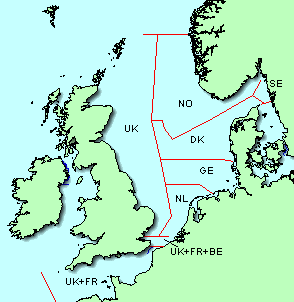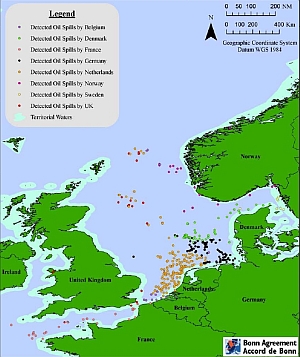Supplement 1.1c: The Bonn Agreement
Following several oil spills in 1969, the North Sea States formed the Bonn Agreement to ensure mutual cooperation in the avoidance and combating of environmental pollution in the North Sea. The agreement was revised in 1983 to include the European Union. The North Sea States are Belgium, Denmark, France, Germany, the Netherlands, Norway, Sweden, and the United Kingdom.

Map of the Bonn Agreement area.
Source: Bonn Agreement
Source: Bonn Agreement
The Bonn Agreement is the mechanism by which the Contracting Parties work together:
- to help each other in combating pollution in the North Sea Area from maritime disasters and chronic pollution from ships and offshore installations;
- to carry out surveillance as an aid to detecting and combating pollution at sea.
The Contracting Parties implement the Agreement by:
- keeping their zones of responsibility under surveillance for threats of marine pollution, including coordinating aerial and satellite surveillance;
- alerting each other to such threats;
- adopting common operational approaches, so that they can rely on each other to achieve the necessary standards of prevention and clean-up;
- supporting each other (when asked to do so) in response operations;
- sharing research and development;
- carrying out joint exercises.

